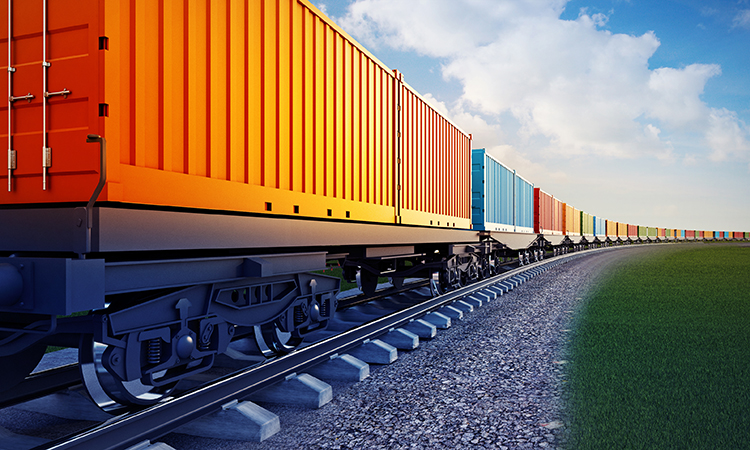ERFA believe increasing energy prices threaten rail freight market
Posted: 9 September 2022 | Elliot Robinson (Editorial Assistant - Global Railway Review) | No comments yet
The ERFA believe that measures should be taken by European Member States to support the rail freight sector during rising energy prices.


The impact of dramatically increasing energy prices in the rail freight market has the potential to not only reverse modal shift, but also to fundamentally change the composition of the European rail freight sector. Many smaller and medium sized railway undertakings are at risk of leaving markets or even bankruptcy depending on the evolution of energy charging policies. The ERFA believe it is essential that measures are taken which support rail freight and ensure 20 years of market opening is not undermined.
It is anticipated that over the coming weeks and months, rail freight undertakings who do not have sufficient energy purchased for 2022 and 2023 will have to secure supply of energy to continue operations. In some Member States, energy prices have increased ten-fold over the past few months. In many cases, especially for smaller operators, entering into such agreements is not a viable option and will result in costs having to be passed on to customers, and if that cannot be achieved, operators leaving markets or, in some cases, even bankruptcies. Moreover, there are still Member States where railway undertakings cannot even directly access the energy market and are totally dependent on the Infrastructure Managers purchasing decisions and their pass-through mechanism for the cost.
It must therefore be recognised that there is a real risk of market consolidation being triggered by rising energy prices. This could be more pronounced in countries where incumbent operators have more favourable access to financing via holding organisations or direct purchase conditions from incumbent holding energy suppliers as opposed to challengers.
Related news you will enjoy:
CER calls for strategy to protect affordable energy supply for rail
Even in cases where railway undertakings have purchased energy for the remainder of 2022 and into 2023, the absence of a cap on energy prices for rail freight will result in railway undertakings not only introducing sharp price increases to their customers but also limiting growth into new markets in order to limit energy consumption. This will damage the sector’s ability to grow in line with the objectives set out in the European Sustainable and Smart Mobility Strategy. It is therefore necessary that the European Commission and Member States take steps to cap energy prices for strategically important sectors such as rail freight as a short-term solution. As part of a longer-term solution, it will be necessary to find a sustainable pricing mechanism for energy for rail freight.
“The risks facing the European rail freight sector, particularly smaller and independent operators, are serious,” Dirk Stahl, President of ERFA, said. “Without support in this extreme situation out of our control, it is difficult to see how we will not have operators leaving the market. The situation is becoming critical in the next month, and it is essential that action is taken at European and national level.”
“ERFA strongly supports a cap on energy prices for rail freight and the recognition of rail freight as a strategic service,” Conor Feighan, Secretary General for ERFA, said. “It is now necessary that the European Commission includes these points in expected emergency measures to tackle increasing energy bills”.
Related topics
Cargo, Freight & Heavy-Haul, Funding & Finance, Operational Performance, Regulation & Legislation, Sustainability/Decarbonisation
Related organisations
European Commission (EC), European Rail Freight Association (ERFA)








